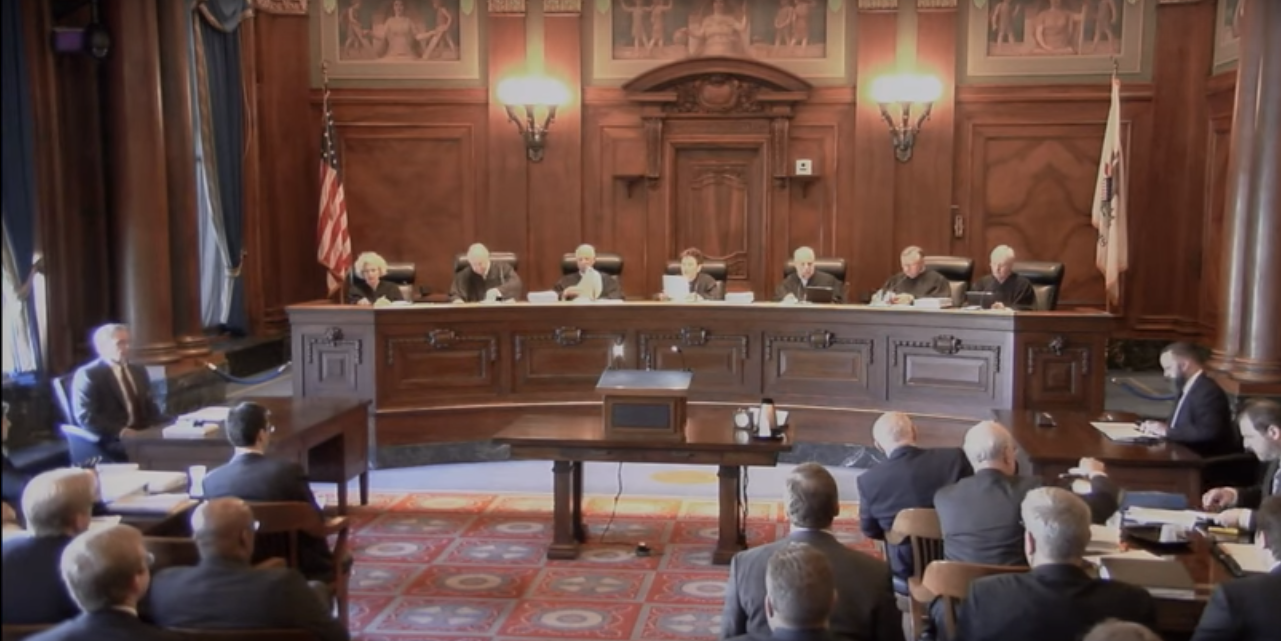A U.S. distributor and seller of Chinese-made vitamin supplements could still be on the hook for a $9 million default judgment originally entered against the potentially insolvent foreign company that made the vitamins, after the Illinois Supreme Court said state law and policy goals make it possible to hang such damages on others in a product’s manufacture and sale chain.
On Oct. 18, the state high court ruled 5-2 a Cook County judge had been wrong to reject plaintiff’s Martin Cassidy’s attempt to pin the judgment on defendant China Vitamins LLC.
The issue dates to October 2006, when Cassidy was allegedly hurt while working at Ridley Feed Ingredients in Mendota. He sued China Vitamins, which acknowledged it distributed and sold the vitamins, but argued it did not make the vitamins or the containers involved in the injury.

Thomas Kelliher
| Horwitz Horwitz & Associates
After a Cook County Circuit Court judge dismissed that complaint, China Vitamins in May 2008 identified the manufacturer of the flexible bulk containers as Taihua Group Shanghai Taiwei Trading Company. Cassidy amended his complaint to also sue Taihua Group as well as vitamin maker Zhejiang Nhu Company.
China Vitamins again was dismissed in January 2012, but the judge entered a default judgment against Taihua Group after it failed to retain a new counsel as ordered in 2010. When collection efforts failed, Cassidy filed to have China Vitamins reinstated as a defendant potentially liable in the case. That motion was granted, but later vacated when the judge determined Cassidy didn’t meet statutory reinstatement requirements. Cassidy appealed.
The appellate court split 2-1, but sided with Cassidy on the question of whether he had to show Taihua Group was bankrupt or dissolved — the point China Vitamins argued — or if, as Cassidy maintained, he was required only to prove he couldn’t force the manufacturer to pay.
The decision was appealed, but the Illinois Supreme Court said the appellate court majority had the correct take on the issue.
Illinois Supreme Court Justice Thomas L. Kilbride wrote the majority opinion. Chief Justice Lloyd A. Karmeier dissented, joined by Justice Robert R. Thomas.
Kilbride said the majority determined China Vitamins’ reading of the state’s strict product liability laws conflicts with both the specific legislation text, as well as the public policy considerations underlying the law.
Kilbride noted it is wrong to infer the law allows a reinstatement only if a defendant such as Taihua Group no longer exists.
“The plain language simply does not say what China Vitamins says it does,” Kilbride wrote.
He said the law includes the purposefully broad phrase “unable to satisfy a judgment” to encompass many reasons a plaintiff might not be able to collect a court-ordered award.
The majority further detailed several “similar policy justifications for imposing liability on any of the entities in a defective product’s chain of distribution, regardless of their actual involvement in the production of the injurious defect” to underscore its reading of lawmakers’ intent to ensure plaintiffs can collect full compensation for injuries.
However, Kilbride continued, Cassidy still hasn’t fully proven Taihua Group has no assets to satisfy the judgment, meaning the appropriate step is remanding the issue to the trial court for further proceedings in determining which entity is liable for the $9 million judgment.
In his dissent, Karmeier said the circuit court was correct to deny the motion to reinstate China Vitamins because Cassidy hadn’t explored “all viable legal avenues” to compel Taihua Group to pay. He further noted “nothing in the statute would prevent” Cassidy from bringing a different reinstatement action once he has a better case that Taihua Group can’t or wont come up with the money.
Karmeier added the majority’s broad reading of the ways to prove a plaintiff can’t recover damages would “create evidentiary conflicts among the circuit courts and appellate districts” and puts an undue burden of proof on defendants like China Vitamins rather than the company primarily responsible for damages.
According to Illinois court records, Cassidy has been represented by attorneys Thomas A. Kelliher and Michael D. Carter, of the firm of Horwitz Horwitz & Associates, of Chicago.
China Vitamins has been represented by attorney Michael Resis, of SmithAmundsen LLC, of Chicago.
